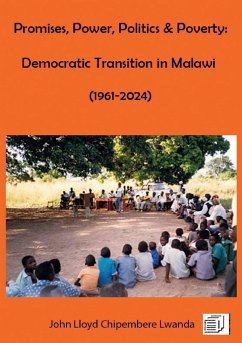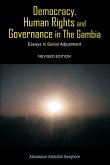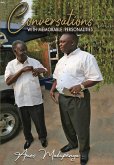Dr. Banda's thirty-year rule was the subject of Lwanda's earlier book Kamuzu Banda of Malawi: a Study in Promise, Power and Paralysis, the first edition of which was in 1993. Now the small Southern African nation of Malawi has been a multiparty democracy since the first multiparty elections on 17 May 1994. The first multiparty dispensation, under the United Democratic Front's President Bakili Muluzi, experienced both startling successes and fantastic failures. Since then, the paralysing poverty has persisted, yet the once silent land is resonating with freedom of speech, free universal primary school education, an independent judiciary... The first incarnation of this book was written in 1996, three years before the elections of 1999. At the time, some of the critical political questions then were: Could the UDF begin delivering on their pledges on poverty alleviation and development? Was the MCP capable of genuinely reforming itself? Could AFORD survive? Could democracy itself survive in Malawi? Could a new cadre of leadership emerge; one that was both unencumbered by the Banda legacy and which spoke for both rich and poor, rural and urban? These are some of the issues discussed in Promises, Power, Politics and Poverty the Democratic Transition in Malawi. This book is still, by far, the most detailed account of the political transition of 1991 to 1994, containing details of the origins of the UDF and AFORD, and charting the rise and fall of the Diaspora-based political parties. It also critically examined the performance of the new government up to 1996. It is an essential comprehensive reading for all those interested in the turbulent politics of Malawi, from 1961 to the present. It has dozens of illuminative pictures and anecdotes.
Hinweis: Dieser Artikel kann nur an eine deutsche Lieferadresse ausgeliefert werden.
Hinweis: Dieser Artikel kann nur an eine deutsche Lieferadresse ausgeliefert werden.








